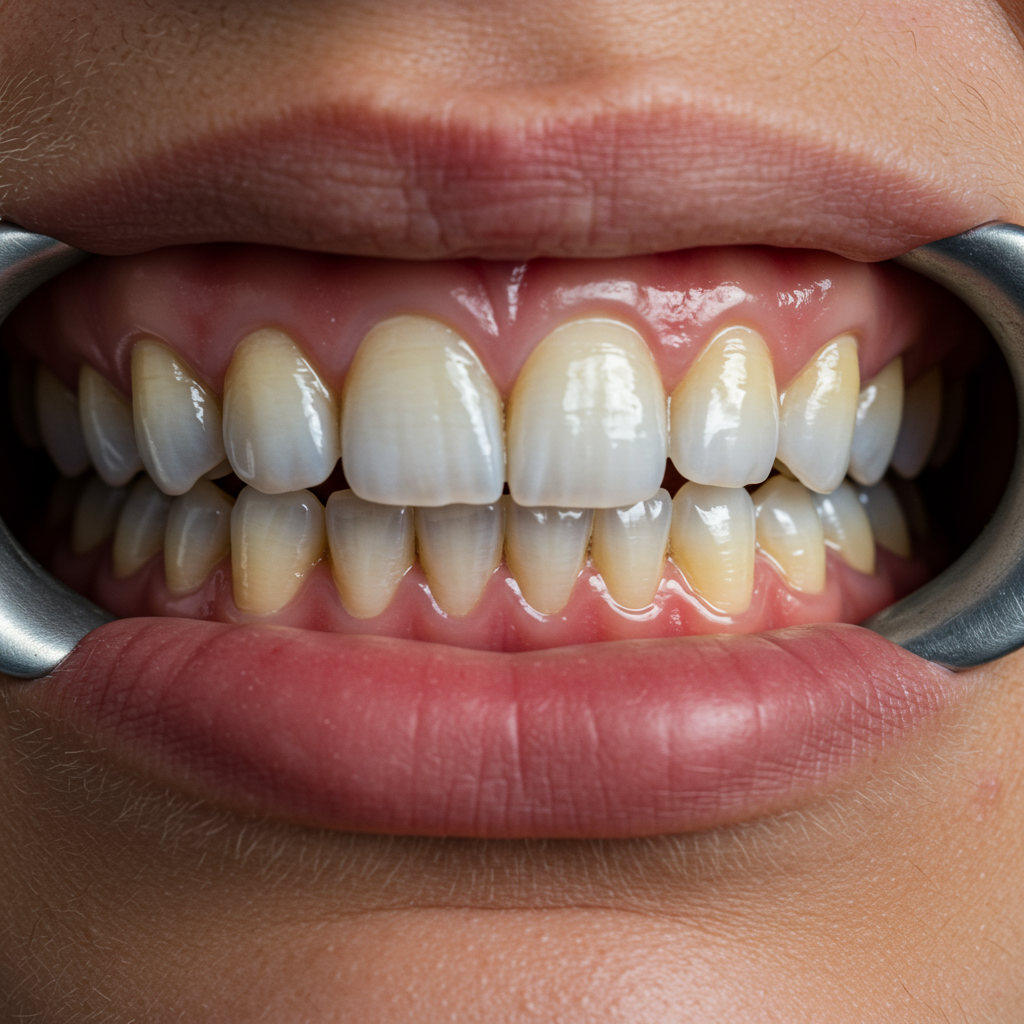Oral health plays a vital role in your overall well-being, and one hidden threat to it is bruxism—commonly known as teeth grinding. A large number of people don’t realize they clench or grind their teeth, especially during nighttime rest. However, this seemingly minor issue can lead to significant dental complications if left untreated.
Bruxism involves unintentional tooth grinding or clenching, typically during sleep but sometimes even when awake. It may sound harmless, yet over time, this habit can damage your oral health in ways that are hard to reverse.
Typically, bruxism wears down the protective enamel on your teeth, causes jaw discomfort, and may even lead to headaches and facial pain. Because it often goes unnoticed until symptoms become severe, understanding bruxism is essential to protect your dental well-being.

Several factors contribute to the development of bruxism. The most common include:
Since these triggers often overlap, a dentist may help identify which one is impacting your oral health most significantly.
Identifying early warning signs can greatly improve outcomes. The most common symptoms of bruxism include:
Over time, untreated bruxism can even loosen teeth or damage dental restorations, affecting your oral health more than you might expect.
When you grind your teeth, the constant pressure can wear away enamel—the natural shield that protects your teeth. Once the enamel is weakened, teeth become more susceptible to decay, fractures, and increased sensitivity.
In addition, bruxism can lead to gum recession, making it easier for bacteria to invade and cause periodontal problems. The jaw joints may also suffer, leading to temporomandibular joint disorder (TMJ), which makes chewing and speaking uncomfortable.
These effects accumulate slowly but surely, putting your long-term oral health at risk.
Thankfully, bruxism is treatable with the right approach. Here are the most effective ways to protect your oral health if you grind your teeth:
Stress Reduction Techniques
Since emotional tension often contributes to bruxism, managing stress with meditation, exercise, or therapy can significantly reduce symptoms.
Orthodontic Solutions
For those with alignment issues, orthodontic treatments like Invisalign or braces can realign the bite and minimize grinding.
Avoid Harmful Habits
Cutting back on stimulants like caffeine and avoiding alcohol before bed can help prevent nighttime grinding. Avoid chewing non-food items such as pens or ice, which can stress the jaw further.
Combining these approaches is often the most effective way to protect your teeth and ensure long-lasting oral health.
Bruxism doesn’t just damage teeth—it can negatively impact your sleep. Jaw grinding disturbs deep sleep cycles, often leaving you fatigued and moody the next day. Sleep-related bruxism is also commonly linked with disorders like obstructive sleep apnea.
When sleep quality declines, so does your body’s ability to repair and regenerate tissues—including those in your mouth. That’s why treating bruxism benefits both your oral health and your overall health.
Bruxism is a subtle but serious threat to your oral health. If left untreated, it can lead to tooth damage, jaw pain, and long-term complications. With prompt diagnosis and consistent care, this condition can be kept under control.
If you suspect that teeth grinding is affecting your smile, book an appointment at Unidental today. Their expert dental team is dedicated to helping you protect your teeth, restore comfort, and achieve lasting oral wellness.
Mild cases may resolve naturally, especially in children. However, adults with persistent symptoms should consult a dentist for long-term protection of their oral health.
You might not realize it unless a partner hears it, but symptoms like jaw soreness or worn teeth are indicators.
At first, it may take a few evenings to get used to the feel. However, most people adapt quickly, and the comfort is worth the protection.
Yes. Severe enamel erosion, cracked teeth, and gum issues are all possible without intervention, threatening your oral health.
Absolutely. While common in kids, it’s important to monitor and prevent early dental wear that could affect future oral health.
Hyderabad : +91 6305 971445
Anantapur: +91 70758 90089
Goa: +91 83266 32500
Mon to Sat 10:00AM to 8:00PM
Sun 10:00AM to 12:00PM

Our goal is to provide friendly, caring dentistry with the highest standards in general, cosmetic, and specialist treatments. We strive to be the best dental hospital for comprehensive oral care.
We use advanced dental technology to deliver safe, precise, and painless treatments for every patient.